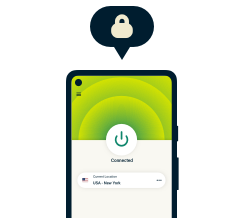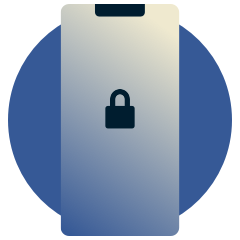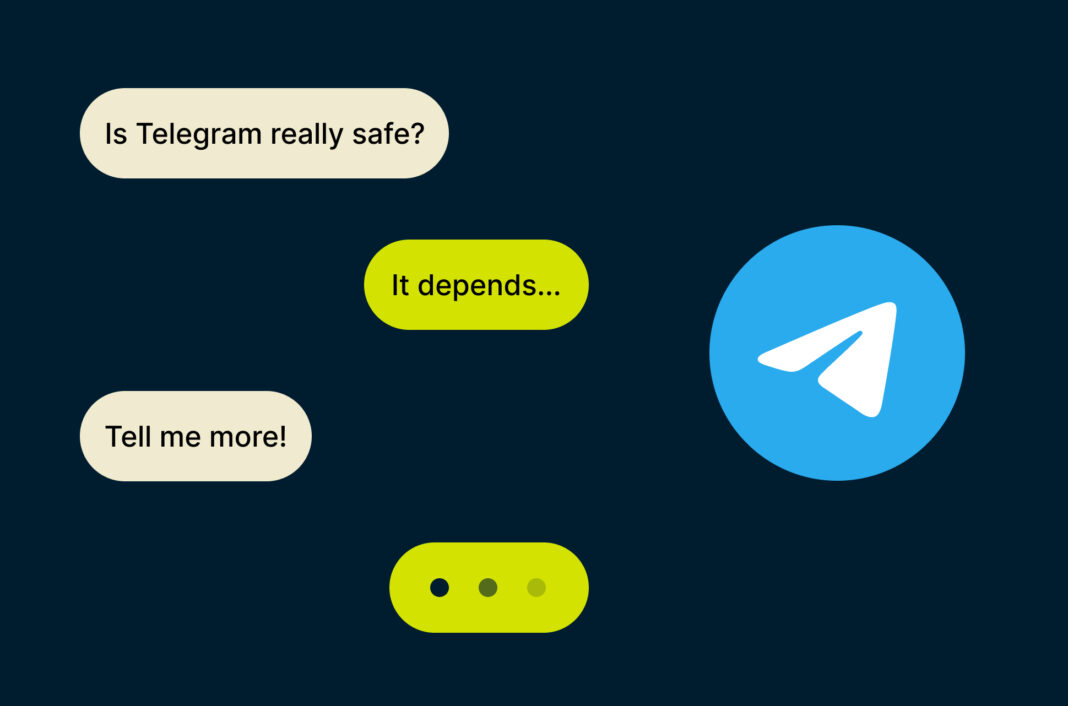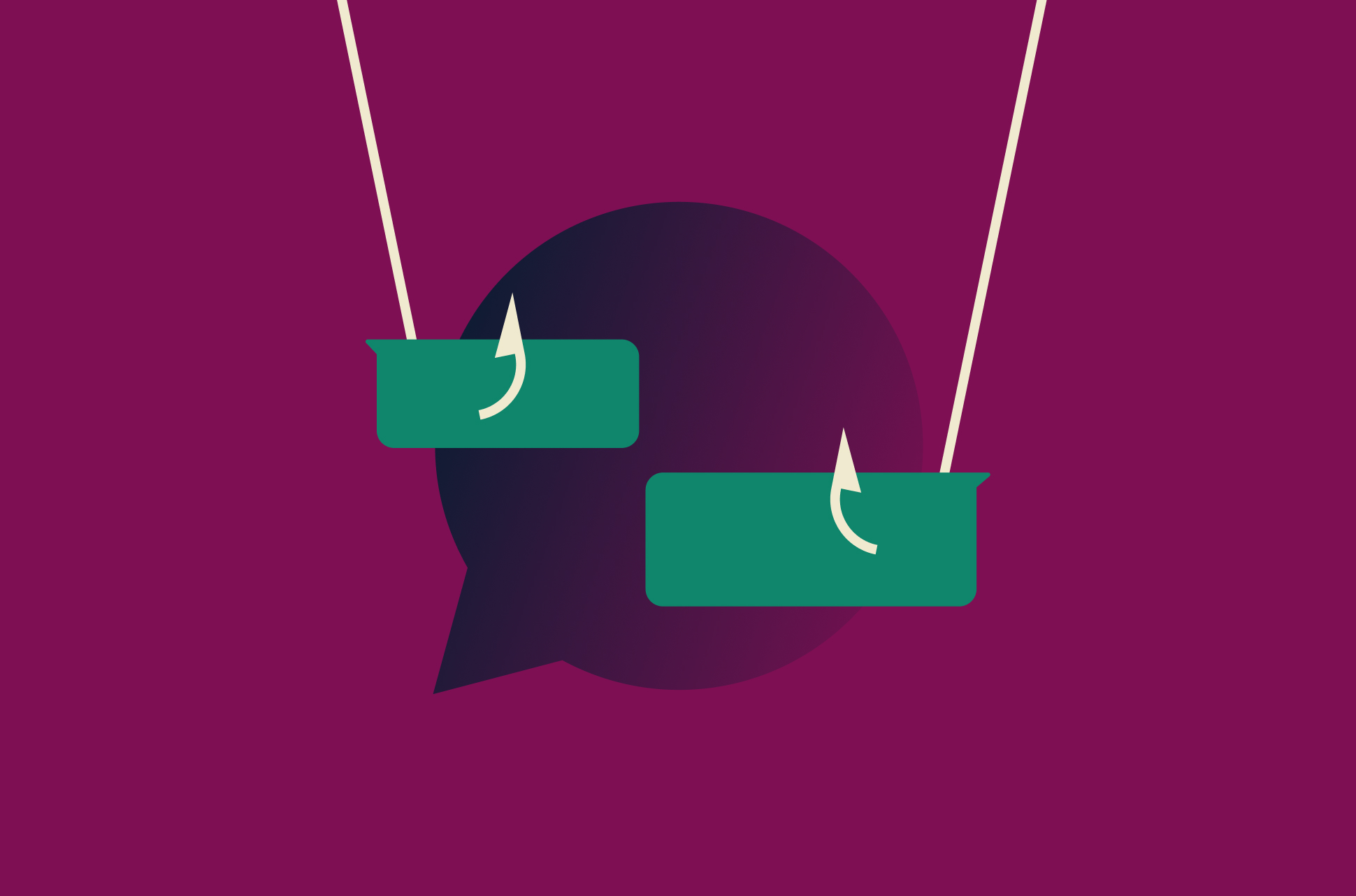Telegram’s safety and privacy levels depend on how you use it. Some functionalities and settings provide greater assurance that your messages and activity remain accessible only to you and the person you’re chatting with. Whether this makes Telegram safe for you depends on how you use the app and which other safety measures you take on your device. Learn how to secure your Telegram account and messages against malicious strangers, and improve your safety when using the app.
Add instant security to your Telegram chats with a VPN
While you can change your privacy settings on Telegram to protect yourself, the app’s safety features can only do so much. It can’t protect your connection against spying or cyber attacks that would reveal your messages. It also doesn’t prevent anyone from seeing your IP address and finding your location. A VPN adds an essential extra layer of protection. You can ExpressVPN to mask your IP address with one from any of our servers across 105+ countries. Our strong encryption and no-logs policyalso protects your data, keeping it private even from us.
Jump to…
What is Telegram?
Is Telegram encrypted?
Are there any security concerns with Telegram?
How safe is Telegram?
Alternatives to Telegram
What is Telegram?
Telegram Messenger is a popular chat app. Although Telegram has been around since 2013, it started gaining notoriety in 2019-2020 as a tool used by protestors to organize large groups of people. This was primarily due to the group chat function—a Telegram group can contain up to 200,000 members. It also offers “channels,” a feed with which organizers can post updates. People can even achieve greater anonymity by keeping their phone number hidden.
Its usage by protesters bolstered Telegram’s reputation as a safe and secure messaging service. But there are nuances to its safety and security—read on.
Is Telegram encrypted?
While every chat and call on Telegram enjoys encryption of some form, only very select types of communication are end-to-end encrypted—the gold standard of encryption. If it’s end-to-end encryption you’re after, then no, chats and calls are not protected by E2EE by default.
End-to-end encryption is enabled for one-to-one calls and messages if you select the Secret Chats option. Secret Chat messages also can’t be forwarded, and there’s a self-destruct timer you can switch on, with intervals ranging from one second to one week.
Other types of chats, group calls, live streams, groups, and channels use secure client-server encryption. Telegram states that everything stored on their servers is encrypted, and the keys protecting that data are split apart and never kept with the data they protect.
Encryption is critical to ensuring private data remains private. While end-to-end encryption is the most secure, client-server encryption also helps protect your messages by ensuring they cannot be deciphered when intercepted by your internet service provider, owners of Wi-Fi routers you connect to, or other third parties.
Read more: Telegram vs. Signal: Which messaging app is better?
Are there any security concerns with Telegram?
Here are security aspects to be aware of if you’re using Telegram:
- Telegram stores user data on its servers, including usernames, IP addresses, and device information. According to their privacy policy, Telegram would only share this data with authorities if they received a court order relating to terrorist activities. However, this data could be at risk of a breach (of which there have already been several, with user data ending up on the dark web).
- Telegram’s People Nearby feature allows you to see Telegram users near you, not just your own contacts but any Telegram users with the feature switched on. People Nearby has been demonstrated to show precise location data to hackers, so we recommend ensuring this feature is off.
- Telegram is considered open-source, but only the client-side code is open-source—its server-side code is not. Telegram uses its own protocol, MTProto, to encrypt your messages, and they have yet to reveal the coding behind it. It’s best to use standard, well-reviewed cryptography libraries rather than creating your own, which is more likely to have big security flaws.
How to use Telegram safely
Telegram is safe, especially if you use it with more stringent privacy settings enabled, and exercise caution when talking to anyone on the app. For maximum security while using Telegram, take the following measures:
- Choose a strong, unique password for your Telegram account.
- Turn on two-factor authentication to protect your account if your password is ever compromised.
- Always use Secret Chats to ensure messages are end-to-end encrypted.
- Turn off the People Nearby feature to protect your location.
- Change the privacy settings to limit who can see your phone number, profile information, and status.
- Disable active sessions on other devices to prevent others from potentially seeing your messages from another device.
- Send self-destructing media files so your photos, videos, and recordings will disappear from the chat after a certain time.
- Use a VPN to shield your IP address (aka your location) from strangers on the app and encrypt your connection to avoid spies on unsafe networks like public Wi-Fi.
- Allow automatic updates so Telegram always downloads the latest security patches as soon as they’re released.
- Lock your Telegram app with a password if you’re concerned about someone accessing your device and reading your messages.
- Change your group permission settings to the “My Contacts” option if you don’t want strangers to be able to add you to large groups without your permission.
- Be careful when opening links or downloads sent by strangers—try to avoid opening something if you can’t verify that it’s safe.
- Avoid giving away personal information to strangers, especially on group chats where you don’t know everyone.
- If you’ve made purchases over Telegram, you can clear the saved payments and shipping information linked to your account from the settings menu.
Alternatives to Telegram
Signal
Signal is one of the best messaging apps for secure communication. By default, Signal provides end-to-end encryption with its own protocol for all voice calls, video calls, and instant messages. Its technology is open source, and it protects metadata. It also only records data provided by users to set up their accounts, which can be only a phone number.
The combination of end-to-end encryption for all message types and wide usage means that WhatsApp is one of the easiest and best options for secure messaging. The main concern for most users is that WhatsApp is owned by Meta—a company not known for prioritizing the privacy of its users. While Meta cannot read your WhatsApp messages, it still collects usage data.
Even though Telegram and all the other messaging apps mentioned here come with built-in safety features, none protect your connection. Every app uses end-to-end encryption to secure your messages, but no system is infallible. If you prioritize your safety and security, using a VPN as an added precaution will protect your private data in a veritable Fort Knox.
You can try ExpressVPN for 30 days with our money-back guarantee, which includes full access to all the extra security features built into our easy-to-use app. Just download the VPN app for your phone or computer, log in, and connect. Finally, open Telegram and start chatting—knowing your messages and all your other data will stay private.

Mask your IP address with a VPN
30-day money-back guarantee

























